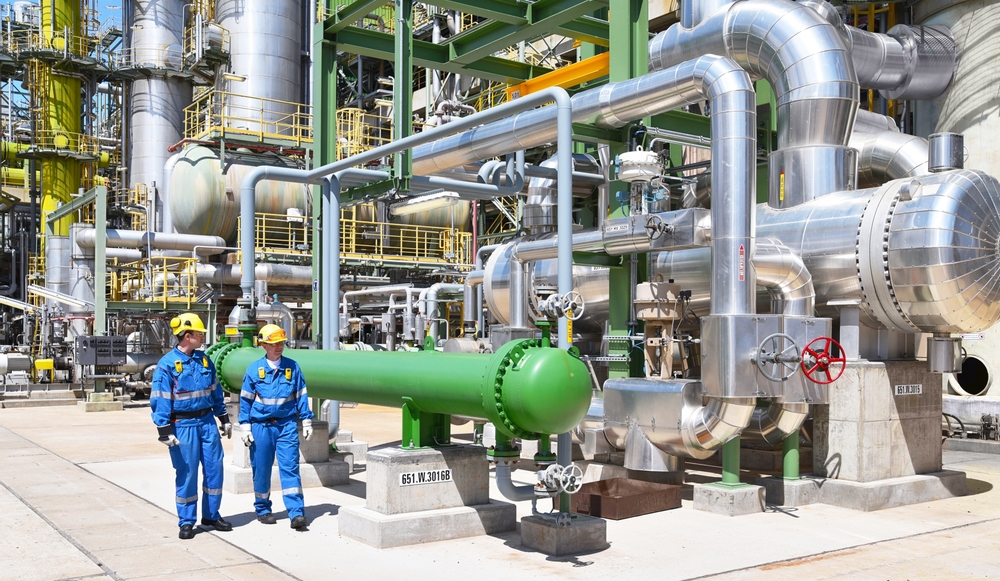The chemical industry is a cornerstone of the global economy, producing essential materials for a wide range of products. However, the inherent hazards associated with handling and processing chemicals necessitate a rigorous commitment to safety. Recent high-profile incidents have served as a stark reminder of the potential consequences of lapses in safety protocols, prompting increased scrutiny from regulatory bodies and a renewed focus on preventative measures within the industry itself.
One of the most prominent responses to these incidents has been a surge in chemical plant safety audits. Regulatory agencies around the world are conducting more frequent and comprehensive inspections, aiming to identify and address any vulnerabilities in safety systems. The Occupational Safety and Health Administration (OSHA) in the United States, for instance, has intensified its enforcement efforts in the chemical sector. OSHA leverages a multifaceted approach that includes planned inspections, follow-up inspections triggered by incidents, and national emphasis programs that target specific high-risk industries or hazards.
Beyond regulatory action, chemical companies themselves are taking proactive steps to bolster safety standards. This includes investing in new and advanced safety technologies. For instance, implementing real-time leak detection systems, improving emergency response protocols, and incorporating process safety management (PSM) best practices are some of the crucial measures being adopted. PSM refers to a systematic approach for the prevention of unintended releases of chemicals, focusing on equipment integrity, operating procedures, and employee training.
There are several key factors driving the rise in chemical plant safety audits. Here’s a closer look at some of the most significant ones:
- Heightened Public Scrutiny: Large-scale accidents involving chemical releases can have devastating consequences for public health and the environment. These incidents receive significant media attention, fueling public concern and prompting stricter regulations. The public outcry serves as a powerful motivator for both regulatory bodies and chemical companies to prioritize safety.
- Aging Infrastructure: Many chemical plants were built decades ago, and their infrastructure may not meet the safety standards of today’s more potent chemicals and complex processes. Safety audits play a vital role in identifying areas where aging equipment or outdated procedures need to be upgraded or replaced.
- Evolving Regulatory Landscape: Regulatory requirements for chemical plant safety are constantly evolving to reflect advancements in technology and best practices. Regular safety audits ensure that chemical plants are operating in compliance with the latest regulations, minimizing the risk of non-compliance fines and potential legal repercussions.
- Continuous Improvement Culture: Leading chemical companies recognize that safety is not a one-time achievement but an ongoing process. Safety audits provide valuable insights into areas where improvements can be made, fostering a culture of continuous improvement within the organization.
The process of a chemical plant safety audit is typically comprehensive and methodical. Auditors delve deep into various aspects of the plant’s operations, including:
- Safety Management Systems: Auditors evaluate the effectiveness of the plant’s safety management system, assessing whether it adequately identifies hazards, implements appropriate control measures, and includes procedures for incident reporting and investigation.
- Process Safety Management: A critical focus area is process safety management (PSM) practices. Auditors examine whether PSM protocols are followed consistently throughout all stages of production, from hazard identification to risk mitigation strategies.
- Equipment and Facility Maintenance: The condition and maintenance practices for equipment and facilities are thoroughly reviewed. Auditors check for any potential safety hazards arising from equipment malfunction or deterioration of facilities.
- Emergency Preparedness and Response: The plant’s emergency preparedness and response plans are scrutinized. Auditors assess whether the plans are comprehensive, up-to-date, and communicated effectively to all employees.
- Employee Training and Competency: The training programs for employees are evaluated to ensure they are adequate in equipping workers with the knowledge and skills necessary to perform their tasks safely. Auditors may also assess employee competency through interviews or practical demonstrations.
Following a safety audit, a detailed report is generated outlining the findings and recommendations. The report identifies any areas of non-compliance or areas for improvement. Chemical companies are then expected to develop a plan to address the identified issues within a specified timeframe.
A Heightened Focus on Preventing Accidents
The increased emphasis on chemical plant safety audits presents both challenges and opportunities for the industry. While implementing enhanced safety measures may involve significant costs, the long-term benefits far outweigh the initial investment. Here’s a breakdown of some of the key advantages:
- Reduced Risk of Accidents: Thorough safety audits play a critical role in identifying and mitigating potential hazards before they can escalate into accidents. By proactively addressing safety vulnerabilities, companies can significantly reduce the likelihood of incidents that can cause injury, loss of life, and environmental damage.
- Improved Worker Safety: Chemical plant workers are exposed to a variety of hazards on a daily basis. Regular safety audits ensure that these workers have a safe working environment with appropriate personal protective equipment (PPE), well-maintained equipment, and clearly defined safety procedures in place.
- Enhanced Public Confidence: The chemical industry plays a vital role in society, but public perception can sometimes be clouded by concerns about safety. Demonstrating a commitment to rigorous safety standards through regular audits can help rebuild public trust and confidence in the industry.
- Operational Efficiency: Safety incidents can be highly disruptive to production schedules, leading to lost revenue and delays. By preventing accidents, companies can ensure smoother day-to-day operations and improve overall efficiency.
- Reduced Insurance Costs: A strong safety record can lead to lower insurance premiums for chemical companies. Regular safety audits can serve as valuable evidence of a company’s commitment to safety, potentially resulting in significant cost savings on insurance.
The Road Ahead
The increased focus on chemical plant safety audits signifies a positive shift within the industry. By prioritizing safety through comprehensive audits and continuous improvement initiatives, chemical companies can create a safer working environment for employees, minimize risks to the public and the environment, and foster a culture of safety that becomes ingrained in everyday operations.
Resources for Chemical Plant Safety
For those interested in learning more about chemical plant safety, here are some valuable resources:
Occupational Safety and Health Administration (OSHA): OSHA provides a wealth of information on chemical plant safety standards, compliance resources, and best practices. They offer safety data sheets (SDS) for various chemicals, specific guidance for the chemical process safety management (PSM) standard, and training materials for employers and employees.
American Chemical Council (ACC): The ACC is a leading trade association for the chemical industry. They offer resources on responsible care®, an initiative designed to help chemical companies improve environmental, health, and safety performance.
**Center for Chemical Process Safety (CCPS): ** The CCPS is an industry technical alliance focused on advancing process safety. They develop industry guidelines and recommended practices for various aspects of chemical process safety and offer a variety of training programs for engineers and other professionals involved in chemical operations.
In conclusion, the rise of chemical plant safety audits signifies a growing recognition within the industry that safety is not a competitive advantage, but a fundamental responsibility. By embracing a safety-first culture and continuously implementing improvements identified through regular audits, chemical companies can ensure a safer future for their employees, the public, and the environment.




Recent Comments